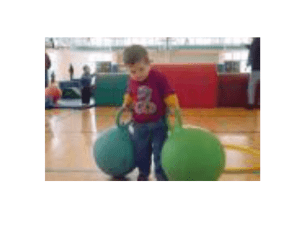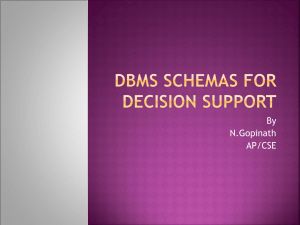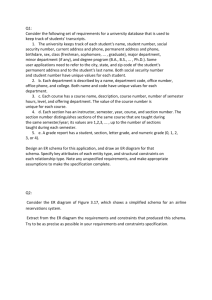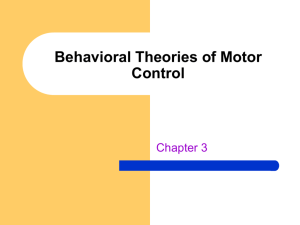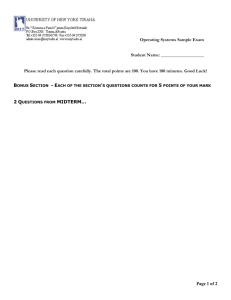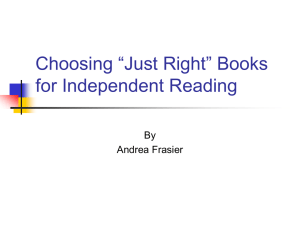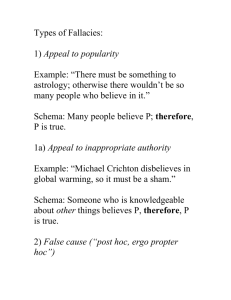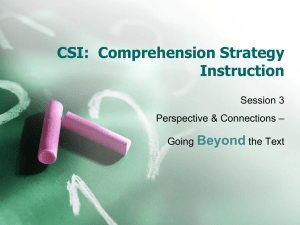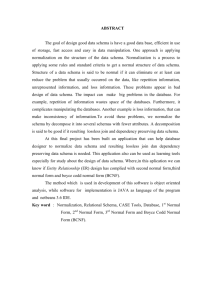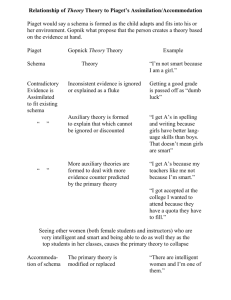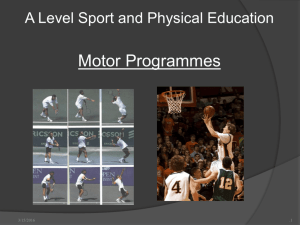Practice Scheduling in Motor Learning
advertisement
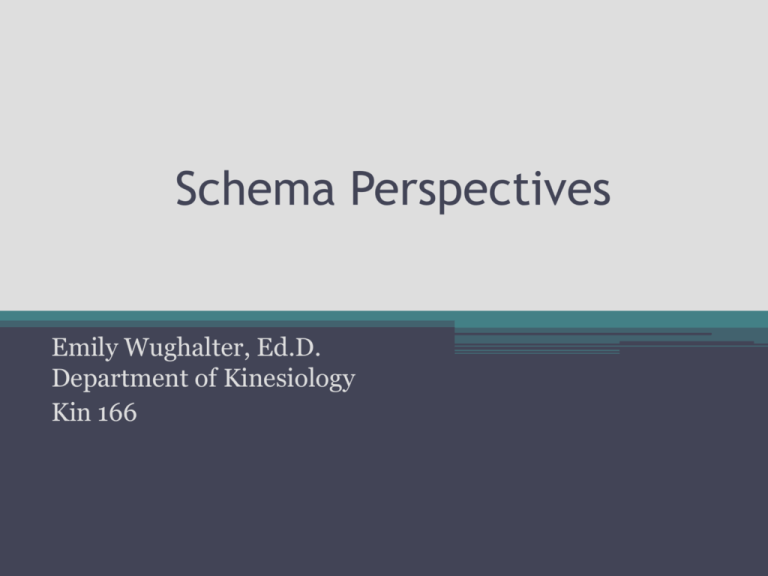
Schema Perspectives Emily Wughalter, Ed.D. Department of Kinesiology Kin 166 • Schmidt, R. A. (2003). Motor schema theory after 27 years: Reflections and implication for a new theory. Research Quarterly for Exercise and Sport, 74, 366-375. • Sherwood, D.E. (2003). Schema theory: Critical review and implication for the role of cognition in a new theory of motor learning. Research Quarterly for Exercise and Sport, 74, 376-382. • Newell, K.M. (2003). Retrospectives and prospectives. Research Quarterly for Exercise and Sport, 74, 383388. Adams’ Closed Loop Theory of Motor Learning Standard Error Detector Motor Organization Output Learning Paradigm Acquisition Retention Transfer Retention Paradigms Retention Recognition Recall Cued Uncued or Free Evolution of motor learning theory • Schema theory was Schmidt’s (1975) response to Adams’ (1971) model of motor learning. • Adams proposed a closed loop model, with specific traces for movement and feedback. • Schmidt criticized Adam’s model based on two notions: storage and novelty. • Adams’ model was restricted to linear positioning tasks, limited generalizability. Schema Theory • In schema theory two memory states are hypothesized. They are: recall and recognition. The terms recall and recognition are taken from the verbal learning literature. Initial Conditions Response Specifications Past Actual Outcomes Recognition Schema Past Response Specifications Recall Schema Desired Outcome Past Sensory Consequences Expected Sensory Consequences Schmidt (1975). A schema theory of discrete motor learning. Psychological Review, 82, 225-260. Four things are stored to satisfy the goal of the movement: • • • • Initial Conditions Response Specifications Sensory Consequences Response Outcome The major hypothesis generated in schema theory is the variability of practice hypothesis, one of the most tested hypotheses in motor learning literature. Acquisition phase of the paradigm used to test the variability of practice hypothesis Constant Practice AAA..., AAA..., AAA… Variable Practice Blocked AAA…, BBB…, CCC… Random BAC…, CBA…, ACB… Serial ABC…, ABC…, ABC… Retention and transfer phases of the paradigm • Transfer has been tested with tasks both within and outside the range of the already practiced tasks. • Both retention and transfer have been tested. • Several studies have examined the effect of variability of practice on performance of children. Schmidt’s predictions • Transfer is better to tasks within the range of the originally practiced tasks. • Variable practice produces better transfer than constant practice. Schema theory still provides impetus for research on the concept of a generalized motor program. Gentile (1972, 1987, 2000) also supported a variable practice structure for latter stages of learning and for skills that have changing features, such as: open skills and closed skills with intertrial variability.
